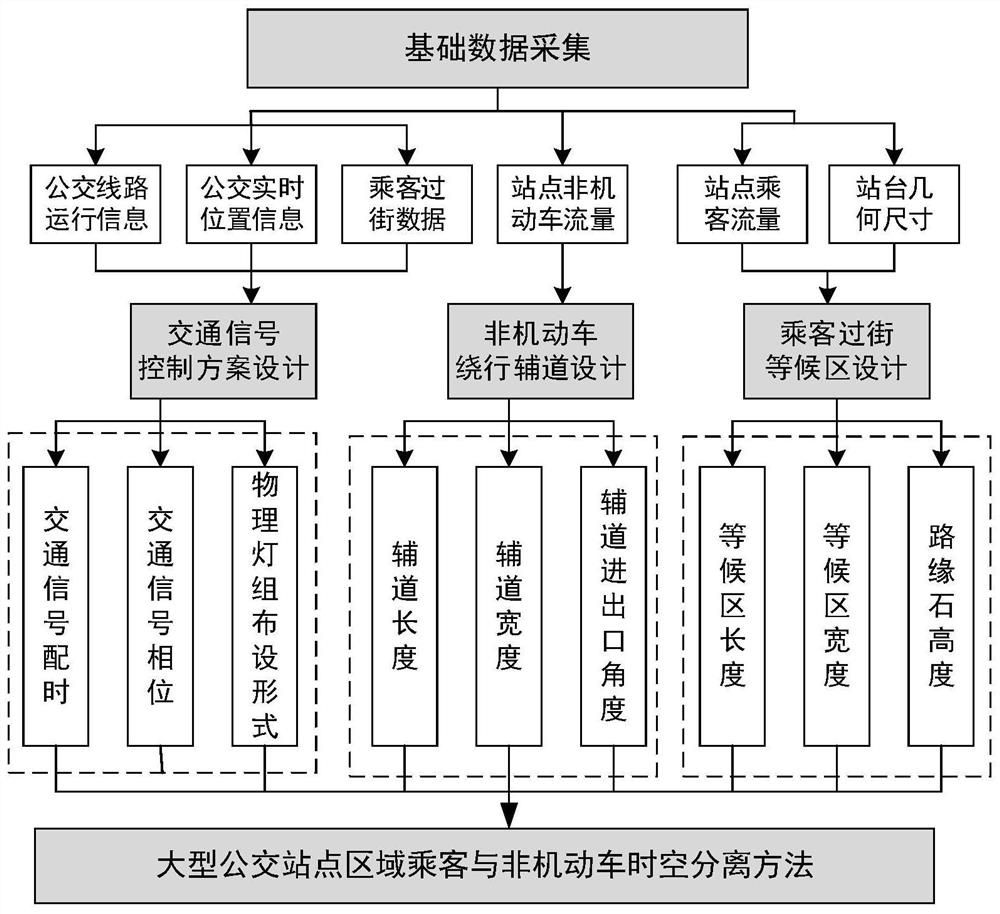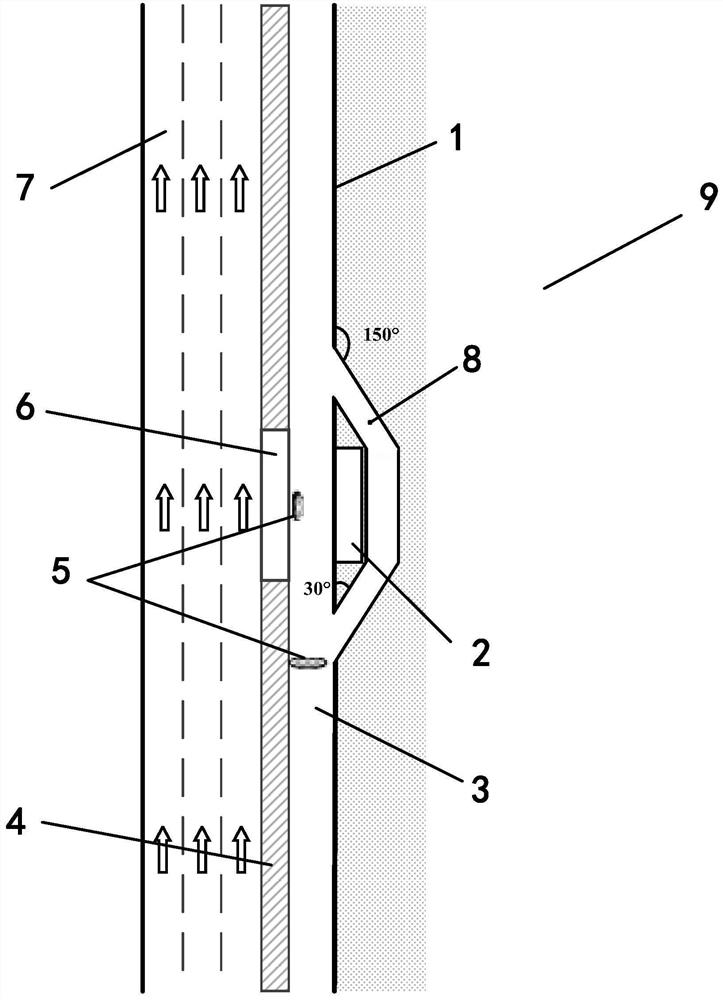A Time-Space Separation Method for Passengers and Non-motorized Vehicles in Large Bus Station Area
A non-motor vehicle and passenger technology, which is applied in the space-time separation of passengers and non-motor vehicles in large bus station areas, can solve problems such as conflicts, and achieve the effect of reducing the degree of conflict, being highly practical, and improving the level of public transportation services.
- Summary
- Abstract
- Description
- Claims
- Application Information
AI Technical Summary
Problems solved by technology
Method used
Image
Examples
Embodiment
[0089] see figure 2 , The present invention is applicable to the sidewalk 9 and the roadside divider 4, and is composed of a non-motor vehicle auxiliary road 1, a passenger crossing waiting area 2 and a signal lamp group 5. The specific method is as follows:
[0090] (A) Collect basic data, including bus line operation information, bus real-time location information, passenger crossing data, station passenger flow data, station non-motor vehicle flow data, and platform geometric size data.
[0091] In this step, the operation information of the bus line includes the traveling direction of the bus, the location and name of the bus stop, and the distance between the bus stop and the adjacent intersection, which can be obtained through field investigation or from the bus operation department; The real-time position can be obtained through on-board GPS or Beidou; passenger crossing data includes passenger crossing pace v p , Non-motorized lane width W p , the passenger flow da...
PUM
 Login to View More
Login to View More Abstract
Description
Claims
Application Information
 Login to View More
Login to View More - R&D
- Intellectual Property
- Life Sciences
- Materials
- Tech Scout
- Unparalleled Data Quality
- Higher Quality Content
- 60% Fewer Hallucinations
Browse by: Latest US Patents, China's latest patents, Technical Efficacy Thesaurus, Application Domain, Technology Topic, Popular Technical Reports.
© 2025 PatSnap. All rights reserved.Legal|Privacy policy|Modern Slavery Act Transparency Statement|Sitemap|About US| Contact US: help@patsnap.com



